
Below we have listed everything you need to know ‘at a glance’
|

First time buyer eBook |
FirstHomeCoach - free app for
|
First Time Buyer Magazine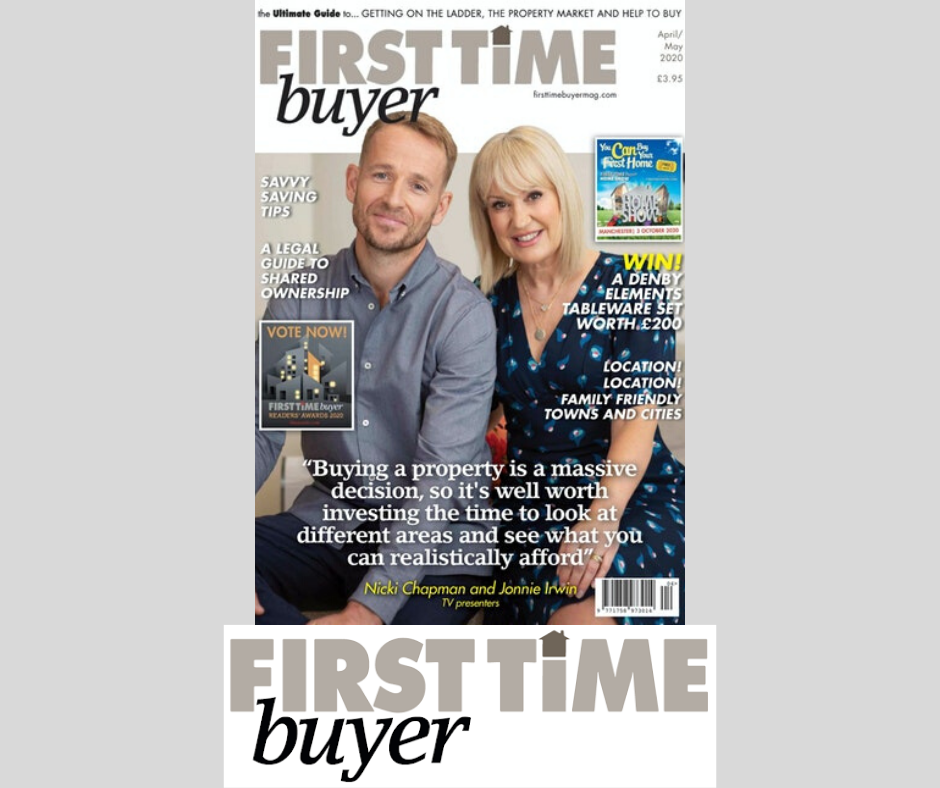 |

Visit our
|
Contact us
|
Visit the dedicated first time buyer forum on PropertyTribes |

FirstHomeCoach - How much can you save?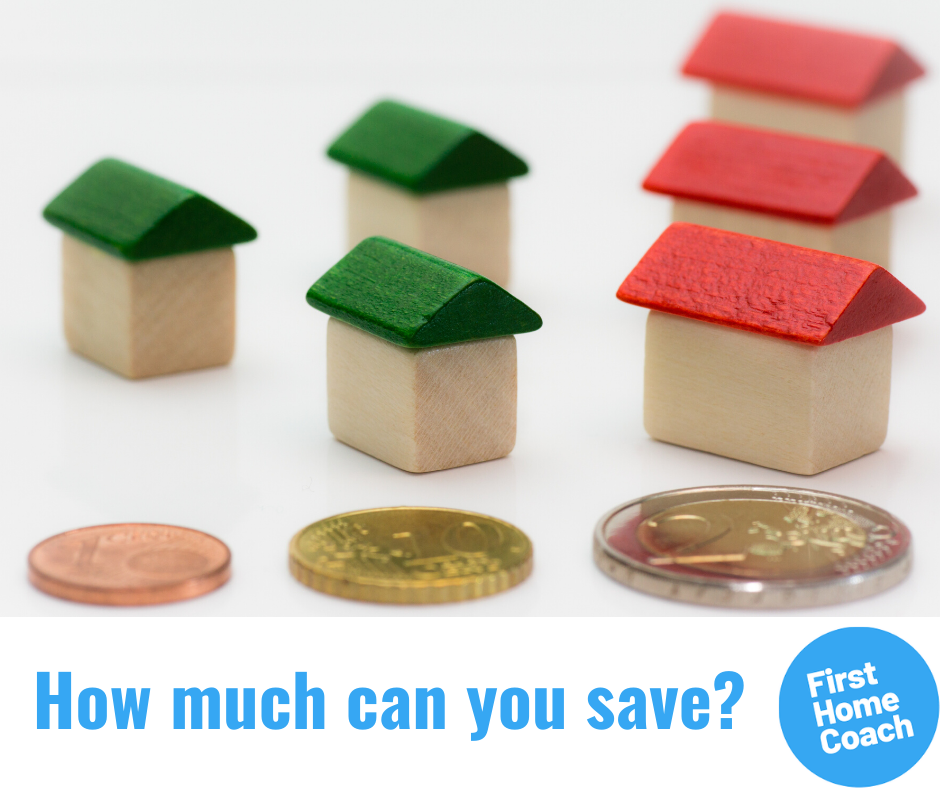 |
Coreco - Mortgage calculator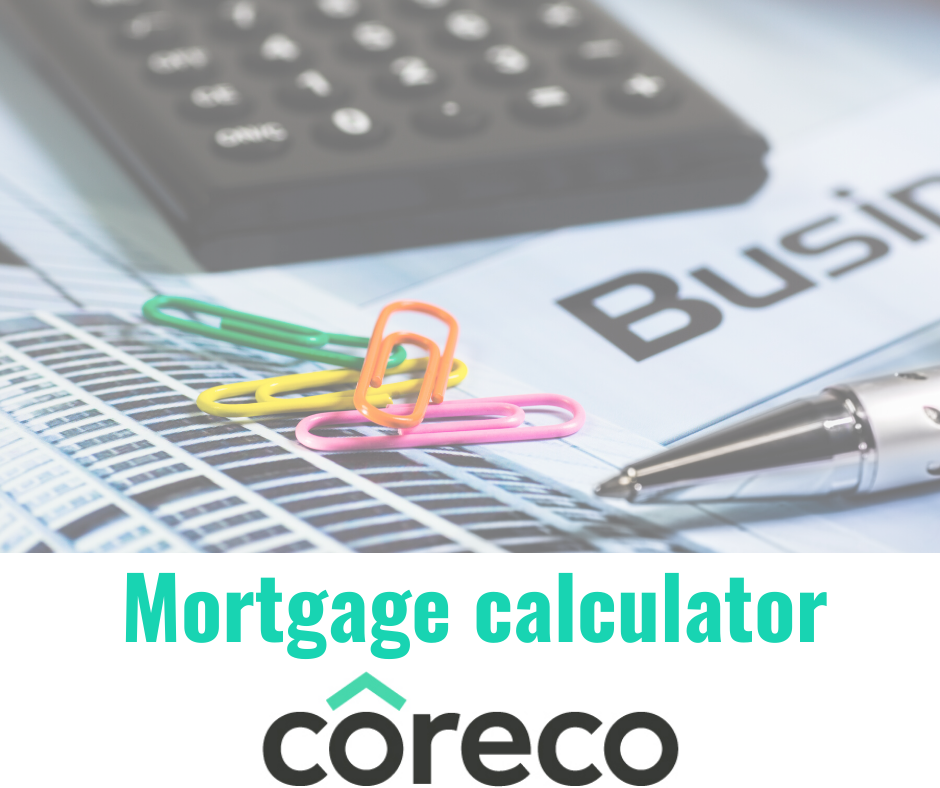 |
reallymoving - Moving cost calculator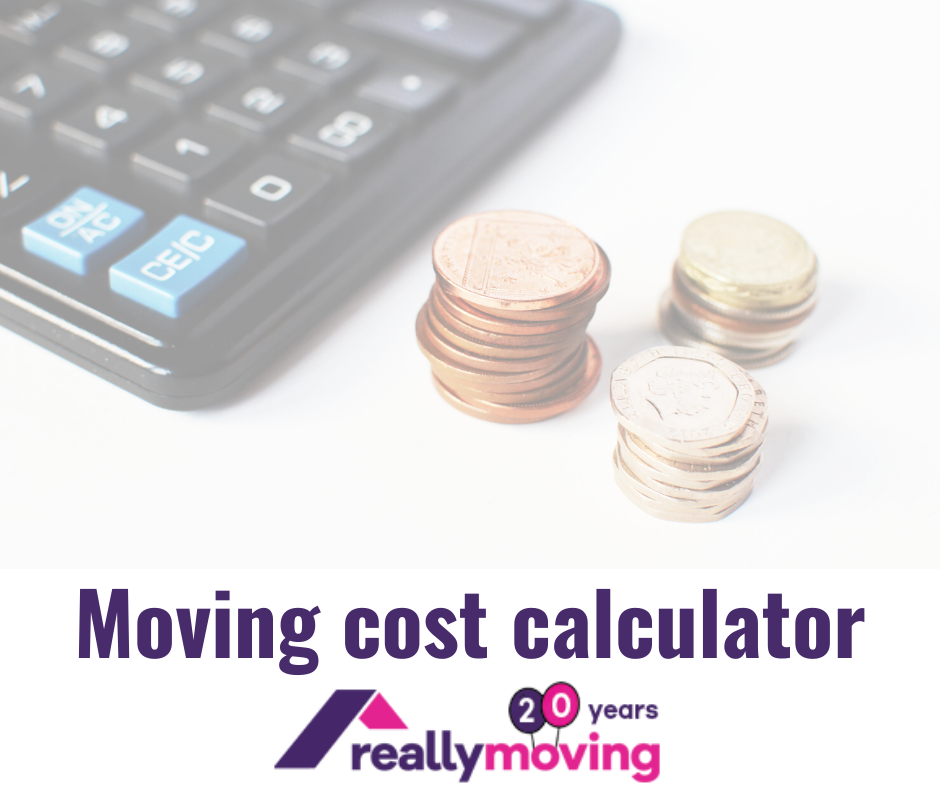 |

When you first start thinking about buying a home you will probably start browsing property portals – this is a bad idea! First you should be sorting your finances!
One thing that might be playing on your mind is just how to save for that all important deposit. You might have seen headlines in the papers saying you need tens of thousands to get on the ladder but the reality can be quite different. Many first-time buyers need to save less than £10,000 and you can half that if you are buying with a partner or friend.
However, figures like this can still seem a little intimidating: |
|
These number are lot less frightening when broken down: |
|
 |
Grab the government help!There are two schemes which will take even more pressure off you: |
Help to Buy ISA - not open to new savers |
|
Lifetime ISA |
|
You can use the Lifetime ISA to buy your first home if you meet the following criteria: |
|
 |
OK, but how do I actually save money? Everything I get goes on billsThis is all about little sacrifices - do you really need to go abroad on holiday this year? Could you use public transport more? Do you get value for money from your subscription TV? Changes like this soon add up to the amount needed to put a deposit down. |
Find out how we help you get saving today for your deposit by visiting our dedicated page.
You can also access our calculators on saving for a deposit and the Help to Buy ISA here: |
But, which scheme is right for me? Find out now with our assessment of the Help to Buy ISA vs Lifetime ISA.
Before you are even ready to buy and search for properties, this is the key question to answer as it’s not just the deposit you need but fees and most importantly how much can you borrow for you mortgage.
Most first-time buyers worry about this the most – but don’t! A good mortgage broker, free of charge initially, will help you budget for your first home purchase (even if it’s years away) You only pay them when they find a mortgage you want and then they’ll help you fill in the paperwork and progress the mortgage for you.
Here’s are our checklists on how to choose a broker, securing the right mortgage and a range of mortgage calculators: |

Legal fees can set you back anywhere from around £300 + VAT to over £1,000 + VAT.
A survey may cost you as little as £250 to as much as £1,500.
There is no Stamp Duty on properties up to £300,000 for you as first time buyer and 5% on the portion from £300,001 to £500,000.
Jump to: |
You will need to pay buildings insurance before exchanging contracts. You will typically purchase this with contents insurance and it will usually be a few hundred pounds.
If you are using a removals company, monies will be payable before moving day, either as a deposit or in full and usually from £150 to over £1,500.
If you don't have too much stuff you may be able to just hire a van for around £100 or just use your own car for free.
Our dedicated page on first time buyer costs gives you all the information you need – click here to visit it now.
No doubt you will have been thinking about your first home for a while and have a list of things you want but it is important to remember that you will likely need to compromise – even those buying for millions have to!
Read our tips above on how to work out what you can spend on a property.
Here is a quick guide to the three government schemes which will help you get on the ladder for the first time. You need to be aware that there are slight differences to the way each scheme work across the UK, these are listed at the end of this section.
With this scheme the Government lends you a percentage of the cost of a new build on an interest free loan for five years so you’ll only need a 5% cash deposit and a low loan to value to purchase a property, giving you access to good rates.
The schemes are different for each country and unfortunately Northern Ireland stopped new Help to Buy purchases in December 2016.
Barratt London provide opportunities for first time buyers to take advantage of the London Help to Buy Scheme. They also run free Help for Homebuyer events to ensure first time buyers have the right knowledge to get on the ladder.
If you are unable to afford 100% of a property in the area you need to live, Shared Ownership offers you the chance to buy a share of your home and pay rent on the rest. You don’t have to ‘share’ with anyone else!
As your finances improve and if you build equity in the property, you can buy bigger shares and in some cases own it outright.
Normally you will purchase a share between 25%-75% apart from Northern Ireland which operates ‘co-ownership’ and shares range from 50% up to 90%.
Right to Buy: |
|
If you are a council tenant and in some cases a housing association tenant Right to Buy allows you to purchase your home at a discount. It has been abolished in Scotland in July 2016 and is being phased out in Wales, with full abolition in January 2019, however is still possible in England and Northern Ireland. |
England: |
Wales: |
Scotland: |
Northern Ireland: |
I am ready to search for properties – what now?
If you know your budget and which schemes you are eligible for you can start searching for properties. You can refine your portal searches to include or exclude things such as shared ownership or you can ask an agent to find properties you love and can afford
Once you've found properties to view, use our: |
 |
Questions should range from practical things like mobile phone reception and broadband speed to querying why the vendors are selling.Always do a second or third viewing before making a decision! Bring a parent, family member or friend for another perspective. |
Most houses are bought on a freehold basis which means you own the property and the land it sits on and are responsible for all the maintenance and repairs.
Flats are bought on a leasehold basis and effectively you agree to be a ‘tenant’ of the property, owning and being responsible for the inside of the property, paying a ‘freeholder’ for the communal and external areas when they need fixing.
Five ‘must ask’ questions either before or during the viewing: |
|
Here are some more resources to help you out: |
Ideally choose a legal company before you make an offer – as you will need their details as soon as your offer is accepted.
Everyone will want to ‘recommend’ a legal company: the agent, the broker, your lender, a developer etc.
However, search for a legal company yourself first, find one you like, then see how they compare to others you are ‘offered’.
WARNING: beware of cheap legal or conveyancing offers – they normally miss out key costs you will have to pay and/or offer a rubbish service, so much so you could lose the property you want to purchase.
Read our article on how to choose a legal company
Some key things to ask: |
|
Here is what a quote should include: |
|
Guide to buying and
|
Compare costs of
|
Ways to speed up your buying
|
Making an offer on a home can be quite stressful particularly if you doing it for the first time. It doesn't have to be though as today it is much easier as there is more information available on what similar properties have sold for.
Here are our top tips for making an offer:
Find out what the seller paid for the property using sold property price data via nethouseprices.com - you will then know if you are buying in a busy or slow market: |
|
Need more help working out what to offer? |
A survey is essential in our view – it is NOT the same as a mortgage valuation you pay the lender for as this will not protect you if things go wrong.
They will tell you: |
|
Take a look these resources: |
You will need to have buildings insurance in place prior to exchanging contracts but you shouldn't just pick any insurance offer.
Not all insurance companies are the same. Some specialise in certain types of property and if you are next to water or in a flood zone some will not cover you so it is definitely worth checking you are using the right insurance company for your specific property and location.
In addition, remember you have to maintain your property to a certain standard if you want to make a claim on your insurance in the future. If you have problems with your roof and it turns out it’s down to lose tiles you didn’t fix or flashing which has failed, then your claim my fail.
For more tips, read our buildings and contents cover checklist.
If you are happy with your survey and the vendor is ready to move forward then your legal company and the sellers' will arrange for you to complete and exchange contracts, meaning the purchase will become legally binding. This is the point where you will be required to pay your deposit to the legal company.
Between the agent and the legal company, a date will be agreed for completion ie when you get your hands on the keys and move in

If the person selling is waiting on their own purchase then things might be delayed - in this situation, called a chain, make sure you keep a calm head and stay in touch with the agent and legal company.
Want to know more about chains? Visit: ViewMyChain.
Once you've got a completion date there are a few things to arrange such as shifting all your belongings, organising your change of address. We have a number of checklists, including the checks to make if you are buying a new-build, to help you work through things so make sure you take a look:
Storing your belongings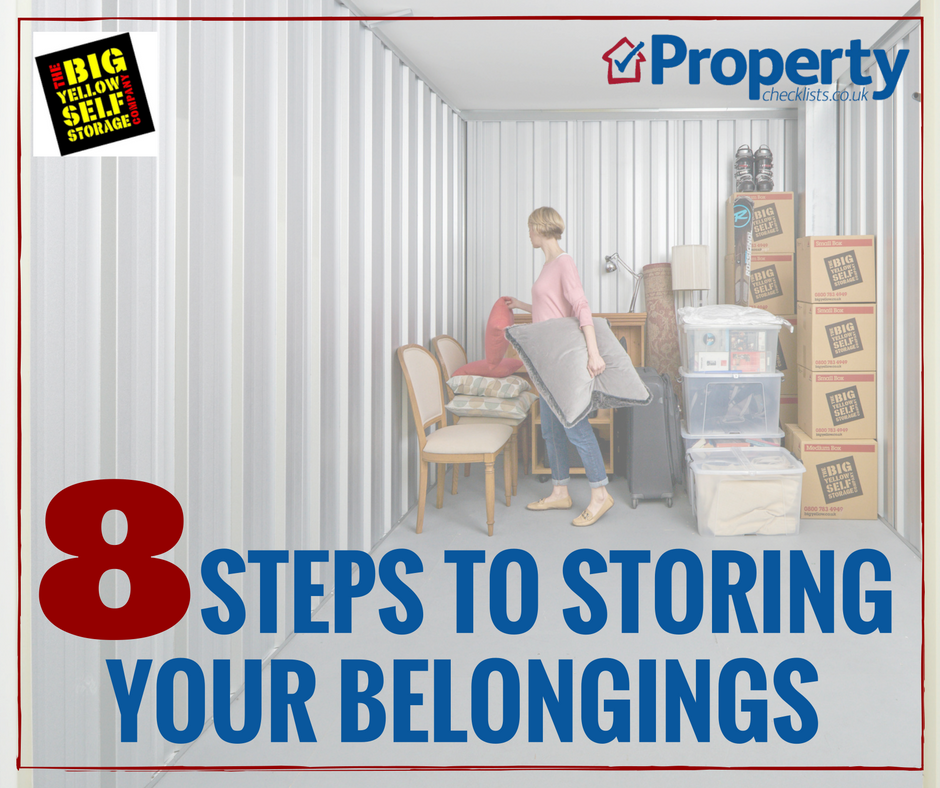 |
New build homes snagging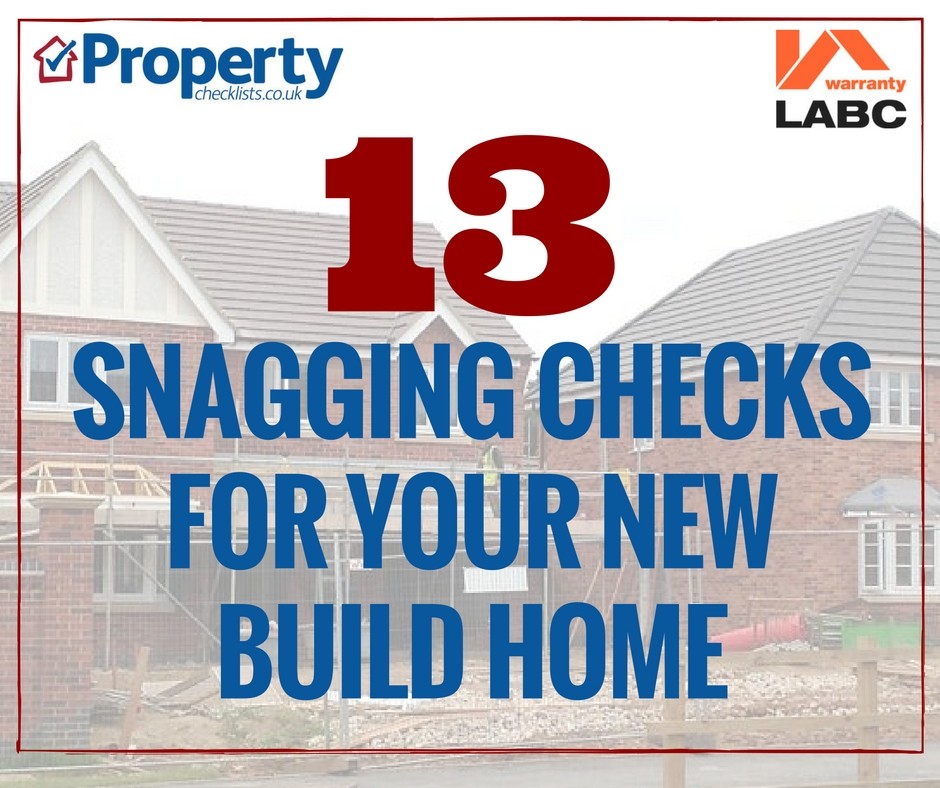 |
How to run in your new build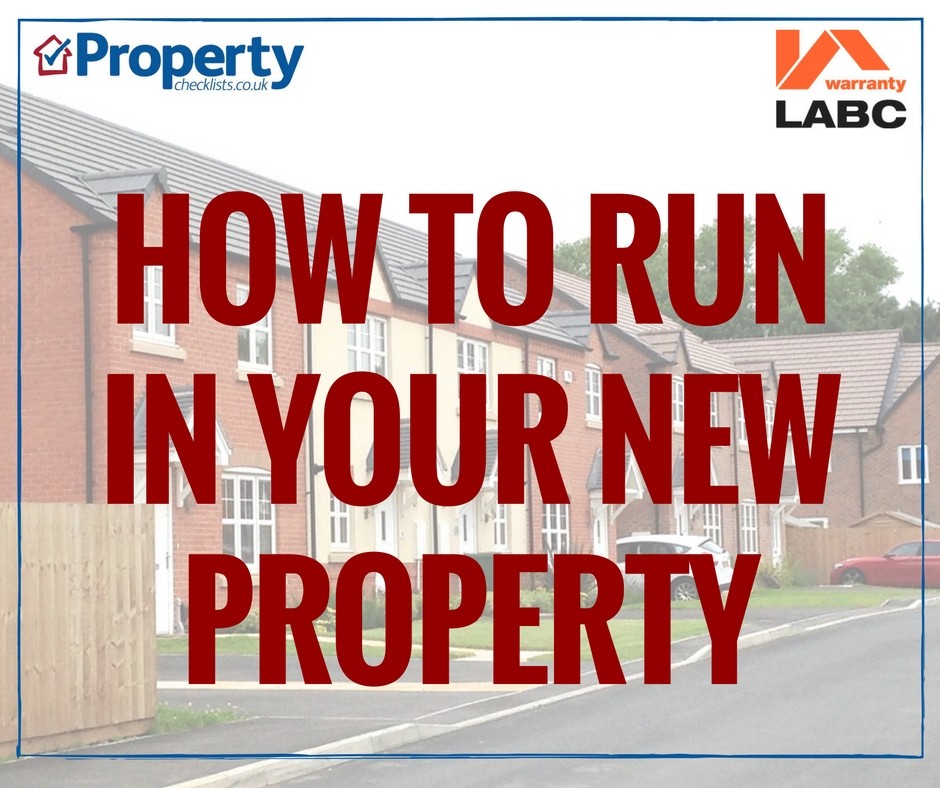 |